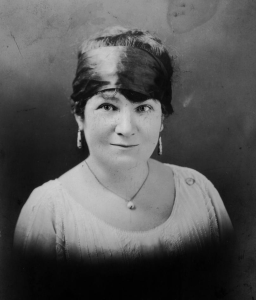Forrest was born on 6 March 1872 near Yandilla, Darling Downs, Queensland, daughter of James Checkley Mills, station manager, and his English-born wife Margaret Nelson, née Haxell. Her youth had been stations near Dalby, Stanthorpe and Goondiwindi, and enjoyed the educational opportunities of her highly cultured mother. With her sister, Ethel, the Mills sisters took up careers as writers at an early age, publishing stories and poems in the Bulletin. After a disastrous first marriage with a selector, Forrest took her name from the marriage with John Forrest, a railway surveyor, in 1902. Her second husband died in 1921.
Forrest’s periodical writing, mostly poetry and short stories, appeared in the Australasian, the Bulletin, Smith's Weekly, the Triad and the Lone Hand, under the names of 'M. Forrest', 'Reca' or 'M. Burkinshaw'. Forrest’s works appeared overseas in the Pall Mall Gazette and the Spectator (London). Forrest became known as 'the most industrious versifier in the Commonwealth'. Her novel, The Wild Moth (London, 1924), was filmed by Charles Chauvel as “The Moth of Moonbi”.
There are important links in Forrest’s literature for Brisbane local history. Her literary work, Streets and Gardens (1922), speaks about modern city planning, and the growth of suburbs. Her poem 'The City Hall' was read at the building's 1930 opening in Brisbane and was later etched on a commemorative marble tablet.
See Mabel Forrest on Scatterplot Matrix.
References
Ferres, Kay. 'Forrest, Mabel (1872–1935)', Australian Dictionary of Biography, National Centre of Biography, Australian National University, http://adb.anu.edu.au/biography/forrest-mabel-12922/text23347, published first in hardcopy 2005, accessed online 6 September 2015.


